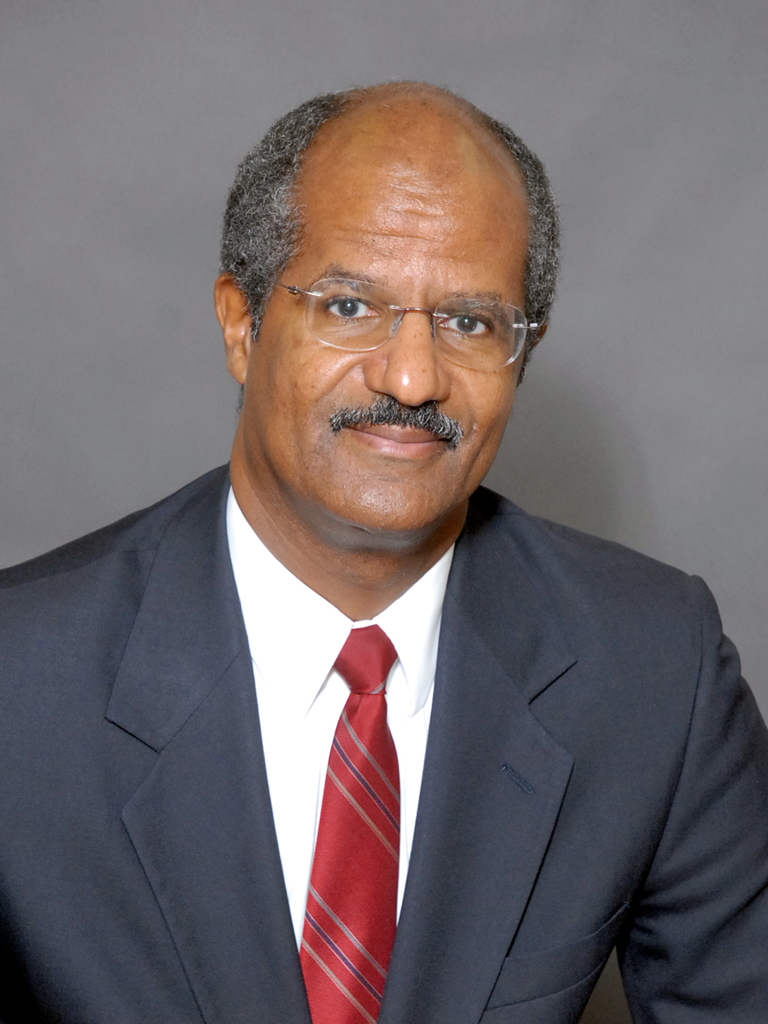SU physics professor co-authors third paper reporting the detection of gravitational waves

Stephen C. McGuire, the Southern University Baton Rouge James and Ruth Smith Endowed Professor of Physics, is now a co-author on the first three publications reporting the observations of binary black hole collisions via the direct detections of gravitational waves by the Laser Interferometer Gravitational-Wave Observatory (LIGO).
All three papers have been published in the journal Physical Review Letters with the most recent, "GW170104: Observation of a 50-Solar-Mass Binary Black Hole Coalescence at Redshift 0.2," appearing the week of June 2, 2017.
According to the official LIGO Scientific Collaboration/LIGO Laboratory press release, "The Laser Interferometer Gravitational-wave Observatory (LIGO) has made a third detection of gravitational waves, ripples in space and time, demonstrating that a new window in astronomy has been firmly opened. As was the case with the first two detections, the waves were generated when two black holes collided to form a larger black hole."
This latest event was detected on January 4, 2017, at 10:11:58.6 UTC by both of the twin advanced LIGO detectors located in Livingston, Louisiana, and Hanford, Washington, USA.
Southern University has been an active member in LIGO in the areas of optical materials research and science education since 1999. McGuire is the Southern University principal investigator to the LIGO Scientific Collaboration. He is a co-principal investigator on the SUBR-LIGO Partnership Project in science education and directs the on-campus Southern University LIGO Advanced Optical Materials Laboratory. The National Science Foundation funds his research.
Earlier this year McGuire was honored to serve as the National Institute of Science (NIS) Memorial Lecturer for the 74th Joint Beta Kappa Chi – NIS Meeting held March 15-18, 2017, in Baton Rouge. He lectured on the topic: "LIGO: Changing our View of the Universe," describing the science of LIGO, SU's role in the LIGO project, and emphasized opportunities afforded by LIGO for participation in STEM careers.
"These observations are enabling significant advances in our understanding of the physical universe while providing ongoing professional and educational opportunities for our faculty and students. Indeed, it is a very exciting time in the history of science," McGuire said.
The LIGO Laboratory is funded by the NSF, and operated by Caltech and MIT, which conceived and built the observatory. The NSF led in financial support for the Advanced LIGO project with funding organizations in Germany (MPG), the U.K. (STFC) and Australia (ARC) making significant commitments to the project. More than 1,000 scientists from around the world participate in the effort through the LIGO Scientific Collaboration, which includes the GEO Collaboration. LIGO partners with the Virgo Collaboration, which is supported by Centre National de la Recherche Scientifique (CNRS), Istituto Nazionale di Fisica Nucleare (INFN) and Nikhef, as well as Virgo's host institution, the European Gravitational Observatory, a consortium that includes 280 additional scientists throughout Europe. Additional partners are listed at: http://ligo.org/partners.php.
